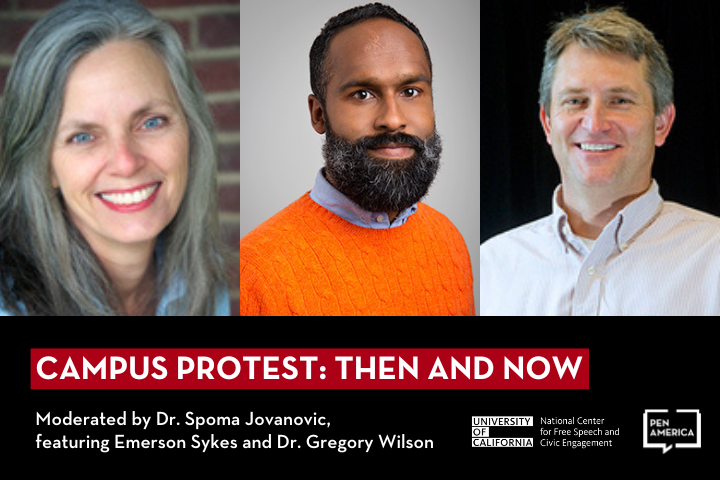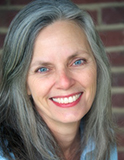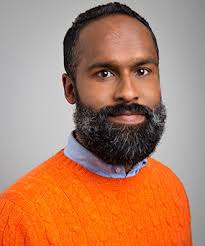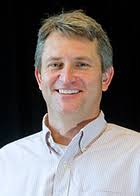Campus Protest: Then and Now

Many are drawing analogies between the activism on campuses today and what happened in the 1960s at Kent State, Columbia, Berkeley and other colleges and universities. What are the similarities and differences between then and now? How is protest distinct from civil disobedience and what role is each playing currently? Join a panel of experts to discuss these topics and how universities should respond in this moment and moving forward.
Moderator:
 Dr. Spoma Jovanovic is Professor Emerita, Department of Communication Studies at the UNC Greensboro. For more than twenty years, she has focused on collaborating with community members to ensure free speech, support student activism in civic actions for democracy and social justice. She was a 2019-2020 Fellow with the University of California National Center for Free Speech and Civic Engagement and served from 2019 until her retirement in 2022 as the director of the National Communication Association’s Center for Communication, Community Collaboration, and Change.
Dr. Spoma Jovanovic is Professor Emerita, Department of Communication Studies at the UNC Greensboro. For more than twenty years, she has focused on collaborating with community members to ensure free speech, support student activism in civic actions for democracy and social justice. She was a 2019-2020 Fellow with the University of California National Center for Free Speech and Civic Engagement and served from 2019 until her retirement in 2022 as the director of the National Communication Association’s Center for Communication, Community Collaboration, and Change.
PANELISTS:
 Emerson Sykes is a senior staff attorney with the ACLU Speech, Privacy, and Technology Project where he focuses on First Amendment free speech protections. Prior to joining the ACLU in 2018, he was a legal advisor for Africa at the International Center for Not-for-Profit Law (ICNL). Emerson was a 2019-2020 Fellow with the University of California National Center for Free Speech and Civic Engagement.
Emerson Sykes is a senior staff attorney with the ACLU Speech, Privacy, and Technology Project where he focuses on First Amendment free speech protections. Prior to joining the ACLU in 2018, he was a legal advisor for Africa at the International Center for Not-for-Profit Law (ICNL). Emerson was a 2019-2020 Fellow with the University of California National Center for Free Speech and Civic Engagement.

Dr. Gregory Wilson is Distinguished Professor of History at the University of Akron. His research and teaching include Ohio history, as well as public history, labor, and the environment in recent U.S. history. He is the author or co-author of four books, including Ohio: A History of the Buckeye State (with Kevin F. Kern), Above the Shots: An Oral History of the Kent State Shootings (with Craig S. Simpson).
OUR PARTNERS:

University of California, National Center for Free Speech and Civic Engagement.






